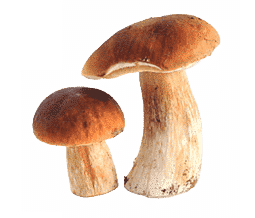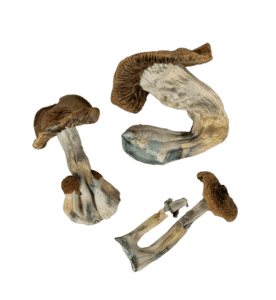
How Lion’s Mane Mushrooms Boost Memory
Traditional medicine, including traditional Chinese medicine, has revered lion’s mane magic mushrooms for their potential health benefits. But in recent years, science has begun to catch up, uncovering exciting possibilities for these unique fungi. One particularly intriguing area of research focuses on the lion’s mane’s potential to enhance memory.
This article will delve into the science behind a lion’s mane and memory. We’ll explore how these remarkable mushrooms‘ active components largely increase memory function, examining the key compounds and their potential impact on the brain. So, if you’re looking for natural ways to support your memory and cognitive health, get ready to discover the fascinating world of lion’s mane mushrooms.The Magic Inside Lion's Mane Mushrooms
Hericenones and Erinacines
These are the rockstars of lion’s mane’s bioactive compounds. Research suggests they are crucial in nerve growth and repair. Here’s why they’re important:
Hericenones: They stimulate the production of the Nerve Growth Factor (NGF) in the brain. NGF is a protein essential for brain cell growth, survival, and repair.
Erinacines: These unique compounds may help protect brain cells from damage and promote the formation of new connections between neurons. This could be especially beneficial for cognitive function and potentially neurodegenerative diseases.
Other Beneficial Nutrients
Beyond hericenones and erinacines, the lion’s mane offers a treasure trove of other health-promoting nutrients:
- Vitamins and Minerals: Lion’s mane boasts vitamins like B2 (essential for energy production) and B3 (important for cholesterol and brain function) alongside minerals like potassium for healthy blood pressure.
The magic of lion’s mane isn’t just about compounds isolated but the synergy between them. These vitamins, minerals, and unique bioactive compounds work together to create a potential brain-boosting effect:
- Improved Cognitive Function: Early research from Queensland brain institute suggests lion’s mane might enhance memory and learning.
- Neuroprotection: The combined effects of hericenones, erinacines, and antioxidants may help protect brain cells from damage.
Important Note:
While research is promising, much of it is based on animal studies. More human trials are needed to understand the effectiveness of the lion’s mane in cognitive health.
How Lion's Mane Mushrooms Help Your Brain
Lion’s mane mushrooms have captured the interest of researchers because of their potential to support brain health. Here’s a closer look at how these fascinating fungi might benefit your cognitive function:
Growing New Brain Cells
One of the lion’s mane’s key contributions to brain health is its ability to stimulate the production of Nerve Growth Factor (NGF). NGF fertilizes brain cells, promoting their growth, survival, and repair. This is particularly important for memory and learning, as new brain cells are crucial for forming and consolidating memories.
Fighting Inflammation
Chronic inflammation is linked to various brain health issues. Lion’s mane possesses anti-inflammatory properties that might help reduce inflammation in the brain. By calming this inflammatory storm, a lion’s mane may create a more favourable environment for cultured brain cells to thrive and function optimally.
Protecting Against Memory Loss
Lion’s mane’s potential benefits for memory loss are multifaceted:
- Preventing Harmful Protein Buildup: Alzheimer’s disease and other neurodegenerative conditions are characterized by the buildup of abnormal proteins like amyloid-beta plaques in the brain. Studies suggest that lion’s mane’s components may help prevent the formation of these plaques.
- Promoting Nerve Repair: As mentioned earlier, a lion’s mane may stimulate nerve growth factor (NGF) production, which can aid in repairing damaged nerve cells. This repair process could potentially help maintain healthy cognitive function.
Potential Benefits for Alzheimer's and Dementia
While research is still ongoing, some studies suggest potential benefits for mild cognitive impairment and Alzheimer’s disease:
Improved Cognitive Function: Studies involving older adults with mild cognitive impairment showed improvement in cognitive function after consuming lion’s mane for a period.
Neuroprotection: Lion’s mane’s combined effects may offer some neuroprotective benefits, potentially slowing down the progression of neurodegenerative diseases.
Important to Remember:
Most research on lion’s mane’s cognitive benefits comes from animal studies or small human trials. More robust studies are needed to confirm its effectiveness for various brain health conditions.
Lion’s mane should not be considered a replacement for conventional treatment of Alzheimer’s disease or dementia.
Real-Life Evidence
While the science behind lion’s mane mushrooms is exciting, it’s important to see how it translates to real-life results. Let’s delve into the evidence from both animal studies and human trials:
Animal Studies
Animal studies offer valuable insights into the potential benefits of lion’s mane. Here are some encouraging examples:
Improved Memory and Learning: Studies on mice have shown enhanced performance in maze tests after consuming lion’s mane extracts, suggesting improved memory and learning abilities.
Human Studies
Clinical trials with humans are crucial for confirming the effects observed in animals. Here’s what we’re seeing so far:
Promising Results for Cognitive Function: Studies involving older adults with mild cognitive impairment have shown improvements in cognitive function after taking lion’s mane for several months.
Anecdotal Evidence: While not scientific proof, some individuals report experiencing improved memory and mental clarity after using the lion’s mane. These stories can offer valuable insights into potential benefits, but robust scientific studies must back them.
Lion's Mane vs. Other Brain Boosters
Compared to other popular brain boosters like caffeine or Bacopa monnieri, Lion’s mane offers a potentially more holistic approach:
Multifaceted Benefits: Lion’s mane may not just give you a short-term energy boost; it might support long-term cognitive health by promoting and boosts nerve growth, reducing inflammation, and potentially protecting against neurodegeneration.
Potential Synergy with Other Nootropics: Some research suggests that lion’s mane may work well alongside other brain-supporting supplements. For example, combining it with choline, a key component for memory, could offer a more comprehensive approach.
Important Considerations:
Human studies on lion’s mane are still in their early stages. More research is needed to solidify its effectiveness for various cognitive conditions.
It’s crucial to consult with a healthcare professional before taking lion’s mane, especially if you have any underlying health conditions or are taking medications.
How to Use Lion's Mane Mushrooms
Intrigued by the potential benefits of lion’s mane mushrooms? Now, you might be wondering how to incorporate them into your routine. Here’s a breakdown of different forms, consumption methods, and safety considerations:
Different Forms Available
Lion’s mane mushrooms come in various forms to suit your preferences:
- Capsules: This is a convenient and pre-measured option. For concentrated benefits, look for capsules containing pure lion’s mane mushroom extract.
- Powders: Lion’s mane powder offers flexibility. Mix it into smoothies or coffee or sprinkle it on yogurt. Choose organic, reputable brands for quality control.
- Extracts: Extracts are highly concentrated forms of lion’s mane. While potent, they may require careful dosing to avoid exceeding the recommended intake.
Tips on Choosing Quality Products:
- Look for reputable brands: Choose brands known for providing high-quality mushroom products.
- Check for organic certification: Opt for organic lion’s mane to minimize pesticide exposure.
- Read labels carefully: Pay attention to dosage recommendations and any added ingredients.
Adding Lion's Mane to Your Diet
Lion’s mane can be a surprisingly versatile addition to your diet:
Smoothies: Blend lion’s mane powder with your favorite fruits, vegetables, and yogurt for a nutritious, brain-boosting and blood brain barrier beverage.
Soups and Stews: For an earthy, umami flavor, add lion’s mane powder or chopped dried mane mushrooms to broth-based soups and stews.
Coffee or Tea: For a subtle, earthy twist, mix a teaspoon of lion’s mane powder into your morning coffee or tea.
Exploring Recipes:
The internet offers a wealth of recipes featuring lion’s mane mushrooms. Explore options like lion’s mane mushroom coffee cake, vegan “crab” cakes, or stir-fries incorporating these fascinating fungi.
Safety and Side Effects
Lion’s mane mushrooms are generally considered safe for most healthy adults. However, some people may experience mild side effects like:
Stomach discomfort is uncommon, but some individuals might experience digestive issues like gas or bloating. Start with a low dose and gradually increase to minimize this risk.
Allergic reactions: If you have allergies to mushrooms or molds, consult a doctor before consuming lion’s mane.
Checking with your Doctor
Before incorporating lion’s mane into your routine, talk to your doctor, especially if:
You have any underlying health conditions.
You are pregnant or breastfeeding.
You take medications, as a lion’s mane might interact with some drugs.
Looking Ahead
While the potential benefits of lion’s mane mushrooms are captivating, it’s important to acknowledge the ongoing research and what the future holds for this intriguing fungus:
More Research Needed
Our understanding of the lion’s mane is still evolving. Here are some key areas where further research is crucial:
Large-scale human trials: Most existing studies involve small sample sizes. Larger, well-designed human trials are needed to confirm the observed benefits and establish optimal dosages.
Long-term effects: Current research primarily focuses on short-term use. Studies investigating the long-term safety and effectiveness of lion’s mane are essential.
Mechanism of action: We’re still unravelling the exact mechanisms by which a lion’s mane might influence cognitive function and other aspects of health.
Why Ongoing Studies Are Important
Further investigation is vital to ensure responsible use and maximize potential benefits:
Safety assessment: More research is necessary to fully understand potential side effects or drug interactions associated with lion’s mane.
Personalized medicine: Understanding how individual factors influence the effects of lion’s mane will help tailor its use for optimal results.
Exciting Future Uses
Beyond its potential for cognitive health, lion’s mane is being explored for other exciting applications:
Neurodegenerative diseases: Research is ongoing to investigate the potential benefits of lion’s mane for managing Alzheimer’s disease, Parkinson’s disease, and other neurodegenerative conditions.
Mental health: Studies are exploring the potential role of the lion’s mane in supporting mental well-being by managing anxiety and depression symptoms.
Overall wellness: The anti-inflammatory and antioxidant properties of lion’s mane may offer benefits for various aspects of health, and research is ongoing to explore these possibilities further.
Conclusion
Congratulations on learning how lion’s mane mushrooms boost memory. While lion’s mane shows potential as a natural memory aid, it’s important to consult a healthcare professional before incorporating it into your routine, especially if you have any underlying health conditions.
Remember, a healthy lifestyle with a balanced diet, regular exercise, and quality sleep remains crucial for improved memory formation. Lion’s mane might be a valuable addition to this holistic approach, but it shouldn’t be a replacement for conventional medical advice.
As research continues to evolve, the future of lion’s mane in supporting memory and cognitive health looks bright.





